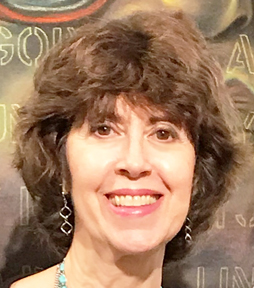(Article changed on April 30, 2013 at 17:41)
It's the kind of story you would expect to see as an episode of Law & Order--not to be a part of. However, in 2008, Cindy Zimmermann's already crumbling world hit rock bottom when her husband, Paul, was murdered.
Married for twenty-three years and the mother of three children, Zimmermann has told her story in A Woman of Interest. In a phone interview, Zimmermann gave me the background on her life and a marriage gone stale. It would take ten years before she acted on getting a divorce. At that point, a lovely home with seven bedrooms and baths in Scottsdale, Arizona, and life as part of a prominent couple in community affairs, were no longer sufficient reasons to hold on to the facade.
Between 2005 and 2010, numerous people in Arizona were impacted by the economic downturn. It extended to people even like the Zimmermanns, who were on the affluent end of the scale. Financial issues added to marital discord. By the time Zimmermann moved out and got her own apartment, Paul's work situation had begun to deteriorate. He had also developed a definite drinking habit.
Zimmermann anticipated remaining friends with her spouse, and breezing through a simple divorce settlement in a state with fifty-fifty asset distribution laws. Instead, contentious litigation dragged on for eighteen months. Out of the workplace for two decades, Zimmermann realized she had to reconnect with the skill set and moxie that had brought her success in her younger years as a medical sales person. To her surprise, she learned that child support and alimony would not be forthcoming.
On the day that Zimmermann's divorce was finalized, her husband--who had been missing for five days--was murdered. Overwhelmed by having her family impacted by a violent crime, Zimmermann's focus was to protect her children. The last thing that would have occurred to her is that she herself would become a prime suspect and later undergo scrutiny as a potential accessory.
A business associate of Zimmermann's husband, when questioned by the police, shot himself with what proved to be the same handgun used in the homicide. Yet, Zimmermann remained under a cloud of suspicion from law enforcement, extended family, and the court of public opinion.
Recovering from a "Lifelong Wound"
At the same time, she was experiencing a difficult recovery process. Zimmermann described losing someone to a violent death as "a lifelong wound." She explained, "It's a very different kind of death that comes with its own set of issues."
Part of her strategy for picking up the pieces of her life
was to "give back" by working at the Hospice of the Valley facility in Phoenix.
She found it very healing to work with physician teams as a conduit to patients in the final
days of life.
Zimmermann developed a plan to get her life back on track. At the center of her initiatives was "gratitude," a feeling she generated by recognizing what was positive in her life. She stayed connected to the priorities of friendship and family, while "negating chaos" at all turns. She related: "Some days all you can do is put one foot in front of the other." Avoiding bitterness, even while others were trying to drive a wedge between her and her children, Zimmermann sought to surround herself with positive energy. Number one on her list was not to "wallow" in the circumstances that had befallen her.
In conjunction with her inside story of the murder-suicide that had landed her in a harsh public spotlight, Zimmermann delivers a narrative in A Woman of Interest of how she transcended major trauma. The tone of the book owes a debt to the mindsets of both Oprah and Suze Orman.
In speaking with Zimmermann, it is clear that one of her major takes is always that women should never relinquish control of their emotional lives or personal finances--whether in a partnership or a marriage.
Zimmermann has since coached women on financial matters. She often includes in her talks the apocryphal tale of how her husband wanted to take out a second mortgage on their home--to finance a new business. She refused to give her consent, thereby avoiding what could have been a path to bankruptcy. To mothers, Zimmermann dispenses the advice of fulfilling parental obligations, such as preparing wills and medical directives.
On an emotional level, Zimmermann stresses the importance of maintaining personal friendships. She points repeatedly to the support she received from her connections throughout her ordeal, particularly from women. As part of a daily spiritual diet, she names three things that she is grateful for. When Zimmermann compares these to the worst moment of her day, she is able to connect with the triviality of the "negative versus the positive."
Zimmermann revealed to me that there was a period when she was fixated on ruminating about how her husband had died, and if he had suffered. She finally gathered the strength to question the authorities about the details, and learned that after being shot in the abdomen--a slow bleeding wound--he had been strangled. Contemplating violence in our popular culture, Zimmermann remarked on the superficial and misleading concept, "People get shot, they die, and it's done."
(Note: You can view every article as one long page if you sign up as an Advocate Member, or higher).





